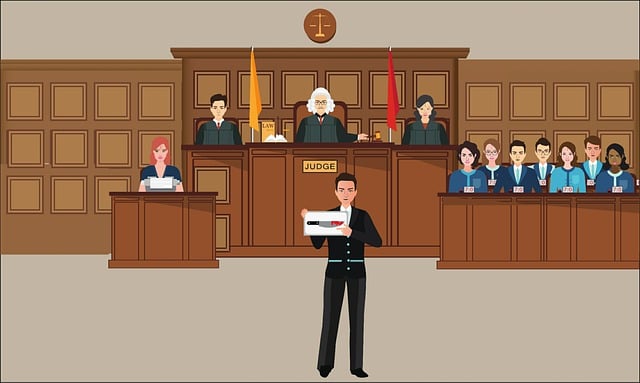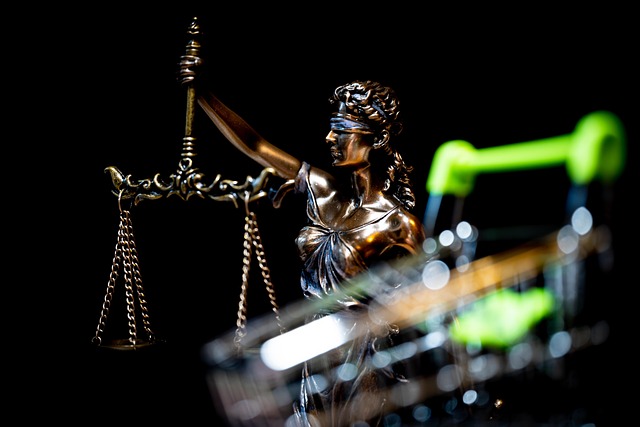Environmental crime trials, governed by strict time limits for personal injury claims, expose legal ramifications of environmental degradation impacting corporations and individuals. Success requires meticulous examination of scientific evidence, legal precedents, and case-specific circumstances within these deadlines. Notable cases like Exxon Valdez and Pfizer's toxic waste disposal highlight corporate liability and ecosystem protection. These trials revolutionize legal proceedings, deter future transgressions, and emphasize accountability for environmental harm, alongside prevention strategies like educational initiatives and stricter regulations. Time limits for personal injury claims encourage prompt action and ensure victims' voices are heard.
“Environmental Crime Trials: Unraveling Justice in Eco-Offenses explores the intricate legal landscape of environmental crimes. This article delves into the unique challenges posed by these cases, with a focus on understanding the legal perspective through case studies. We analyze the impact of time limits on personal injury claims in eco-crimes, revealing their significance in prosecution strategies. Additionally, it highlights notable trials, their outcomes, and implications for future prevention, offering insights into the evolving realm of environmental justice.”
- Understanding Environmental Crime Trials: A Legal Perspective
- The Impact of Time Limits on Personal Injury Claims in Eco-Crimes
- Case Studies: Notable Environmental Crime Trials and Their Outcomes
- Future Implications and Prevention Strategies for Environmental Crimes
Understanding Environmental Crime Trials: A Legal Perspective

Environmental crime trials present a unique legal landscape where the consequences of environmental degradation are brought to light. These cases often involve complex issues and can have far-reaching impacts on both corporate and individual clients. Understanding the nuances of such trials is crucial for achieving extraordinary results, especially when navigating the time limit for personal injury claims.
The legal perspective on these trials emphasizes the importance of holding accountable those responsible for environmental harm. Winning challenging defense verdicts requires a meticulous approach, ensuring that all aspects of the case are thoroughly examined within the prescribed time limits. This process involves sifting through scientific evidence, legal precedents, and the specific circumstances of each case, ultimately aiming to deliver just outcomes for all parties involved.
The Impact of Time Limits on Personal Injury Claims in Eco-Crimes

In environmental crime trials, one significant factor that can influence the outcome of personal injury claims is the time limit for filing suits. These deadlines, often stringent, play a crucial role in eco-crimes cases due to their unique complexities and long-term impacts on affected communities. The Time Limit for Personal Injury Claims varies across jurisdictions but generally requires prompt action; this urgency is vital to ensure that evidence remains viable and witnesses are readily available. For his clients, this can be a double-edged sword—a challenge that demands swift legal action yet necessitates thorough investigation.
An unprecedented track record of successful eco-crime prosecutions has been attributed to lawyers who understand these time constraints and adeptly navigate them. By strategically managing deadlines, they ensure their clients’ rights are protected and that the true perpetrators face justice. This is especially critical in cases where environmental harm may not manifest immediately but could have long-lasting effects on public health and safety.
Case Studies: Notable Environmental Crime Trials and Their Outcomes

Notable Environmental Crime Trials and Their Outcomes
Case studies play a pivotal role in understanding the impact and consequences of environmental crimes. One of the most renowned examples is the Exxon Valdez oil spill case, where Exxon Mobil was held accountable for one of the largest environmental disasters in history. This unprecedented event led to massive fines and a significant shift in corporate responsibility. The trial set a precedent by demonstrating that companies can be held liable for their actions, with a time limit for personal injury claims playing a crucial role in determining the speed of justice.
Another significant trial involves Pfizer, which faced charges related to the improper disposal of toxic waste. The company’s unprecedented track record of environmental negligence resulted in substantial penalties and a wake-up call for corporate governance. These cases highlight the power of legal systems to address environmental crimes, ensuring that businesses are held accountable for their impact on ecosystems and communities.
Future Implications and Prevention Strategies for Environmental Crimes

As Environmental Crime Trials gain momentum, they set a precedent for future legal proceedings and environmental protection. The unprecedented track record of successful prosecutions is a game-changer, demonstrating that environmental crimes will no longer be overlooked or easily dismissed. This shift in approach has the potential to significantly deter future transgressions, as businesses and individuals alike face stricter accountability. By holding perpetrators accountable, these trials send a powerful message: environmental degradation is not just a regulatory issue but a criminal offense with severe consequences.
Prevention strategies must accompany this heightened legal scrutiny. Educational initiatives and public awareness campaigns can play a vital role in promoting sustainable practices and responsible behavior. Additionally, implementing stricter regulations and penalties, coupled with improved monitoring systems, will serve as robust deterrents. For instance, setting clear time limits for personal injury claims related to environmental damage encourages prompt action and ensures that victims have a voice in the justice system. Such measures collectively aim to create an impenetrable barrier against environmental crimes, fostering a future where ecological preservation is a shared responsibility and accountability.
Environmental crime trials play a pivotal role in holding perpetrators accountable and ensuring justice for ecological damage. By examining case studies and understanding legal perspectives, we can identify effective strategies for prevention and mitigation. Moreover, evaluating the impact of time limits on personal injury claims in eco-crimes is crucial for balancing swift justice with the complex nature of environmental disputes. Looking ahead, a comprehensive approach that incorporates robust legal frameworks, stringent penalties, and proactive education can significantly reduce environmental crimes, fostering a more sustainable future.






